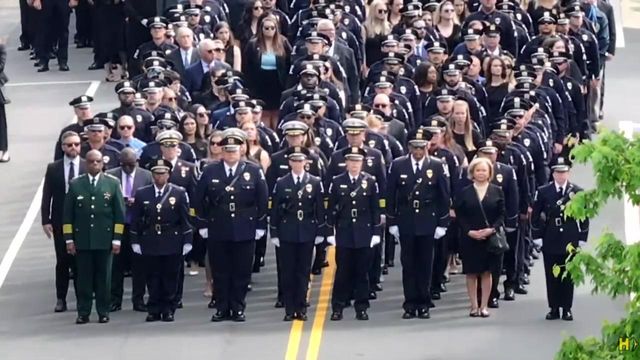NC judge sets Racial Justice Act appeals for October
Three North Carolina death row inmates could have their sentences reviewed in October under the revised Racial Justice Act, while the status of a fourth inmate's appeal is unclear.
Superior Court Judge Greg Weeks held preliminary hearings in the four cases Friday morning in Fayetteville.
Tye Hunter, executive director of the Durham-based Center for Death Penalty Litigation, said the four convicted murderers want to have their sentences reduced to life in prison under the original Racial Justice Act, not the amended version passed by the General Assembly last month.
The landmark 2009 law allowed death row prisoners to use statistics to show that racial bias influenced their sentences, but the Republican-led General Assembly overrode Gov. Beverly Perdue's veto on Monday to roll back much of the law. Now, statistics alone aren't enough to have a death sentence commuted, and the inmate must also introduce evidence pertinent to his or her case.
The cases Weeks heard Friday are those of Tilmon Golphin, a 34-year-old black man; Quintel Augustine, a 34-year-old black man; Christina Walters, a 33-year-old American Indian woman; and Jeffrey Meyer, a 45-year-old white man. All were convicted of first-degree murder in Cumberland County.
Golphin and his underage brother, Kevin, were convicted of gunning down two law officers in 1997 after their stolen car was pulled over on Interstate 95. Augustine was part of a group of four who taunted Fayetteville police Officer Roy Turner Jr. and then shot him in the head and shoulder once he got out of his car. Walters, as part of a gang initiation, abducted and shot three teenage girls in 1998, killing two of them. Meyer and an accomplice, who dressed in black ninja garb and were allegedly inspired by the tabletop game "Dungeons and Dragons," killed an elderly couple in 1986 with a blowgun and knives.
Golphin, Augustine and Walters will have their hearings on Oct. 1. They asked to proceed under both the 2009 law and the amended law.
There was no word on whether Meyer will continue with his appeal or when a hearing would be held if he does.
"It's just ridiculous, and it needs to end," said Dixie Davis, the widow of North Carolina State Highway Patrol Trooper Ed Lowery, one of the officers the Golphin brothers killed.
"These people are evil. It's not because of their color. They are evil," Davis said. "If they had been pink or purple or white, it would be the same thing. They still did the crime."
Nearly all of North Carolina's 150-plus death row inmates filed for reviews after the 2009 act passed. Proponents of the rollback said the recent amendments were needed to keep the state's courts from being bogged down.
The new law provides 60 days for inmates to revise their appeals to comply with the amendments to the 2009 law, but it is not clear if the original appeals are still valid.
"It definitely kind of murkies the water in that you've had a lot of change, and to some extent it's up in the air," said Hunter, who is helping represent the four convicts. "It is certainly going to cause a lot more litigation."
The original appeals, Hunter said, will likely take years to move through state courts. He said they might be appealed all the way to the state Supreme Court and through federal courts as well.
"It's not as straightforward as some people have assumed," Hunter said.
It's no coincidence that the case is in Weeks' court. Hunter said the testing of the new law was chosen for Cumberland County because of Weeks' prior experience with the Racial Justice Act.
In the first and only case under the 2009 Racial Justice Act, Weeks ruled that condemned killer Marcus Robinson's 1991 trial was racially influenced to the point where Robinson should be removed from death row.
Robinson is a black man convicted of killing a white teenager in 1991 and was almost executed in 2007. Weeks said he found highly reliable a study by two Michigan State University law professors who analyzed the influence of race in the North Carolina judicial system. They found prosecutors eliminated black jurors more than twice as often as white jurors and that a defendant is nearly three times more likely to be sentenced to death if at least one of the victims is white.
As they did in Robinson's case, state attorneys tried to disqualify Weeks from the case, saying they might call him as a witness because he heard two of the capital cases included in the Michigan State study.
Weeks denied the motion Friday, ruling that judges aren't allowed to testify as to mental impressions, mental processes or thought processes in cases.











